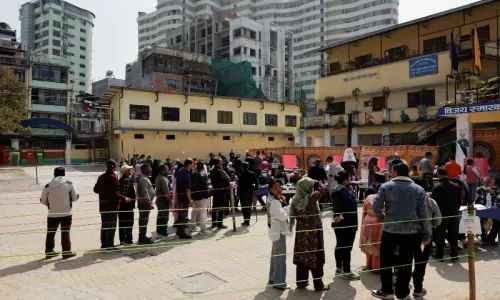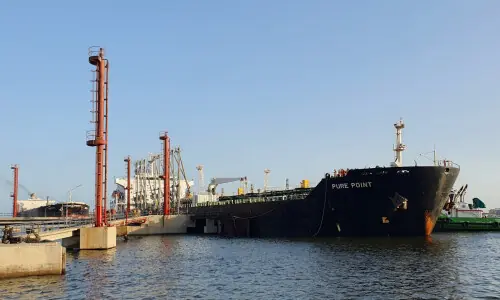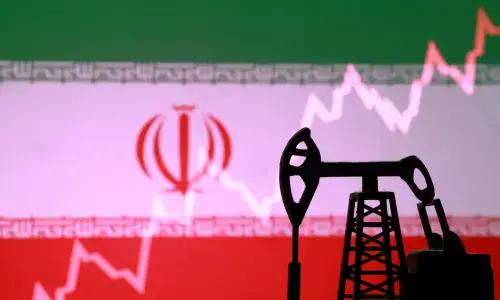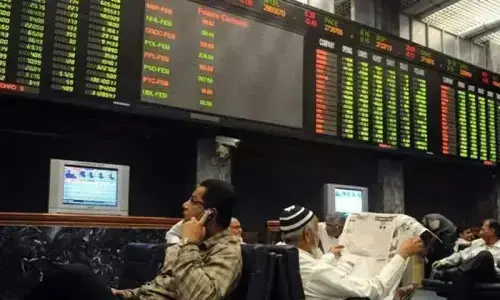ISLAMABAD: Defence budget during the next fiscal year will remain unchanged as compared to the outgoing fiscal year in rupee terms due to the country’s dire economic condition.
Prime Minister Imran Khan took to Twitter on the eve of Eidul Fitr to announce that the military had “voluntarily agreed” to cut its expenditures due to “critical financial situation”. He noted the continuing “multiple security challenges” and pledged to spend the saved amount on development of the erstwhile tribal areas, which have been merged into Khyber Pakhtunkhwa, and Balochistan.
Chief of the Army Staff Gen Qamar Bajwa, while talking to troops during a visit to the Line of Control on Eid day, said the armed forces were “foregoing routine increase in annual defence budget”.
The defence budget freeze will be for one year.
The original budgetary allocation for the outgoing fiscal year (2018-19) was Rs1.1 trillion. The allocation made up 21 per cent of last year’s original budget outlay and 3.2pc of gross domestic product (GDP).
PM says military ‘voluntarily agreed’ to cut its expenditures due to ‘critical financial situation’; army chief states impact will be managed by ‘tightening belt’
The actual expenditure incurred on defence this year will, however, be announced by the finance ministry while laying the budget for next year (2019-20) before the National Assembly on June 11. The figure will, however, not give the complete picture of the defence budget as it will not include Rs260 billion for pension of retired soldiers, Rs45bn for security enhancement and undeclared allocations for major weapon procurements and strategic programme.
Although the budget figures will remain static, in reality it will mean lesser available money for the troops due to devaluation of the rupee and inflation; and hence it is being described as cut in defence expenditure.
Little details are officially available about the impact of the budget freeze that comes against the backdrop of the government’s agreement with the International Monetary Fund (IMF) for a $6bn bailout package.
The IMF, while announcing the staff-level agreement last month, said the forthcoming budget would aim for a primary deficit of 0.6pc of GDP. The primary deficit is expected to be little over 2pc during the outgoing fiscal year ending on June 30. The IMF had said the reduction in deficit would be achieved through taxation measures, including elimination of exemptions, curtailment of special treatments and improvement in the tax administration. It had, however, long been speculated by financial analysts that the government would be forced to cut all expenditures, including defence spending.
Military sources say there will be no arms procurement during the next fiscal year, expenditure on rations/TA&DA will be cut, overheads will be rationalised and there wouldn’t be pay raise for officers due to the freeze.
Gen Bajwa in his interaction with troops on the LoC said the impact would be managed by “tightening our belt” in areas where it did not affect operational capacity. “Irrespective of the voluntary cut in defence budget in the upcoming financial year, there shall be no impact on our response potential to all types of threat and quality of life of the soldiers,” he said.
Indian media slammed
The military’s spokesman, meanwhile, lashed out at the way Indian media presented the cut in defence expenditures. “Indian fake media busy spinning on our internal defence budgeting choice. Don’t forget, we were the same forces with same budget on 27 Feb 19. We have the capability and capacity to respond. Remember, it’s not budgeting, it’s resolve of force and the nation firmly standing behind its forces,” ISPR director general tweeted from his official account.
The defence budget has grown consistently over the past decade by an average of about 11pc per annum with two exceptions — 2013-14, the first year of PML-N government, when it spiked by 15pc, and 2018-19, PML-N government’s last budget, when it increased by around 18pc over the previous year’s original allocation.
Meanwhile, the share of defence budget as percentage of GDP has increased from 2.3pc in 2014-15 to 3.2pc in the budget for 2018-19. Calculating the defence budget as percentage of GDP shows its burden on the national economy.
Published in Dawn, June 8th, 2019


































